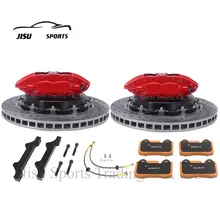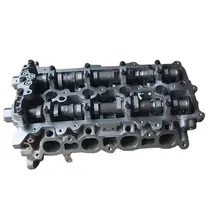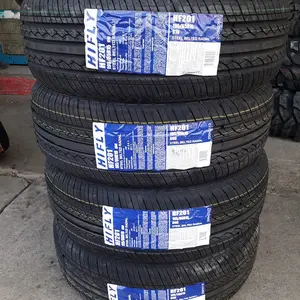The Essence of Vehicle Tires
Vehicle tires are indispensable to an automobile's functionality, tasked with delivering traction, bearing the vehicle's weight, and mitigating the jolts from uneven roads. As the sole point of contact with the tarmac, their role in ensuring safety, enhancing performance, and optimizing fuel consumption is paramount. The selection of tires hinges on the type of vehicle, seasonal variations, and the specificities of the driving terrain.
To the average consumer, tires may not command much attention, yet for those within the automotive sector, they are a focal point. Subjected to rigorous engineering, tires are designed to endure diverse forces and conditions, whether it's the substantial weight borne by trucks or the rapid velocities of sports cars. Tire design incorporates tread patterns for maximum traction and stability, pliable sidewalls for shock absorption, and durable materials to resist wear and thermal degradation.
A tire's function is simple yet vital: it acts as a buffer between the vehicle and the road, reducing the transmission of shocks and vibrations to the vehicle's chassis and its occupants. Tread designs are optimized to expel water, averting hydroplaning, and to cater to various conditions such as dry, wet, or snowy environments. The construction of tire sidewalls ensures they remain rigid enough to support the vehicle's load, all contributing to a seamless and secure driving experience.
Diversity in Vehicle Tires
Alibaba.com boasts a comprehensive assortment of vehicle tires, each tailored for particular requirements and uses:
-
Passenger Car Tires: Crafted for routine use on personal vehicles, these tires prioritize comfort, noise reduction, and reliable traction across weather conditions. The selection spans tires for compact cars, sedans, and SUVs, accommodating a wide array of vehicles.
-
Light Truck Tires: These tires are engineered for heavier loads and stability, making them suitable for trucks and vans. Their robustness and resilience make them the go-to choice for pickups and commercial delivery vehicles.
-
Car Racing Tires: Formulated for peak performance and adhesion on dry circuits, these tires feature specialized tread patterns and rubber formulations that ensure superior handling and control at elevated speeds.
-
Low-Profile Tires: Sporting a reduced aspect ratio for a more streamlined appearance, these tires deliver sharper steering feedback and improved stability during cornering, commonly fitted on performance-focused vehicles.
-
All-Season Tires: True to their name, these tires are adept at handling a multitude of conditions, from damp roads to moderate winter scenarios. They strike a balance between grip and durability with their moderate tread depth and pattern.
Selecting the Right Vehicle Tires
Choosing the appropriate vehicle tires for your enterprise requires an assessment of several factors that resonate with your operational demands and the challenges faced by your fleet. Businesses should consider the following:
-
Vehicle Type Compatibility: Opt for tires that align with your vehicle's specifications, including size, load capacity, and speed rating. The requirements for passenger cars differ from those of light trucks or particular brands such as Honda or Toyota.
-
Material & Construction: The decision between radial and bias tires depends on the intended use of the vehicle—radial tires offer versatility across conditions, while bias tires might be more economical for niche applications.
-
Speed Rating & Technology: A tire's speed symbol denotes its ability to maintain a certain velocity. It's crucial to select a tire whose speed rating either meets or surpasses the demands of your vehicle.
-
Applicable Industries & Local Service Locations: Take into account the sector your business operates within and the geographic areas where you require tires. Different locales may necessitate distinct tire attributes, such as enhanced snow traction in some countries or specific features for industrial use.
-
Customization Options: Certain businesses might need bespoke solutions like ODM or OEM services, which provide custom tire designs based on unique client specifications.
By integrating these considerations with the tire options available on Alibaba.com—including those crafted from natural rubber or advanced aluminum alloys—you can make a well-informed choice that upholds your business's efficiency and safety benchmarks.
About Vehicle Tires on Alibaba.com
Alibaba.com presents a vast selection of vehicle tires to meet diverse needs across various industries and applications. Whether your requirement is for compact car tires or robust tires for heavy-duty trucks, Alibaba.com connects you with suppliers ready to meet your specific business demands. The platform's extensive product range features materials like natural rubber and sturdy synthetic compounds, ensuring longevity and performance under assorted driving conditions.
As a global marketplace with over two decades of experience in bridging suppliers and buyers, Alibaba.com recognizes the significance of variety and customization in the contemporary market. Hence, you'll find suppliers on Alibaba.com offering tailored services such as ODM, OEM, or OBM, catering to your branding needs or product specifications.
Furthermore, Alibaba.com is dedicated to ensuring seamless transactions with services like Trade Assurance, which safeguards your payments until delivery confirmation. With capabilities that support mobile purchases and multilingual communication, sourcing vehicle tires through Alibaba.com is convenient and secure, making it an exemplary platform for businesses aiming to outfit their fleets or stock retail outlets with premium tire products worldwide.
Common FAQs for Vehicle Tires
What types of vehicle tires are available for different vehicles?
A variety of vehicle tires are on offer, encompassing passenger car tires, light truck tires, commercial tires, all-terrain tires, and high-performance tires, each designed for specific driving requirements and conditions.
How do I determine the correct tire size for my vehicle?
The appropriate tire size for a vehicle is located in the owner's manual, on the information placard on the driver's side door jamb, or by inspecting the sidewall of the vehicle's current tires.
What should I consider when choosing tires for different weather conditions?
In choosing tires for varying weather conditions, factor in the typical climate in which your vehicle operates. All-season tires are versatile, winter tires are indispensable for cold climates, and summer tires excel in warm conditions.
Can I mix tire types on my vehicle?
It is ill-advised to mix tire types as it can adversely affect the vehicle's handling and performance. Adhering to the manufacturer's recommendations for tire types and their intended applications is advisable.
What is the importance of speed rating symbols on tires?
Speed rating symbols on tires signify the tire's maximum safe load-carrying speed under specified conditions. They are essential to ensure the tires are compatible with the vehicle's performance capabilities.
How does tire pressure affect vehicle performance and safety?
Maintaining the correct tire pressure is critical for optimal vehicle performance and safety. Incorrect tire pressure can result in poor fuel economy, uneven tire wear, diminished handling, and a heightened risk of accidents.
Are there any industry standards for vehicle tires that I should be aware of?
Certain industry standards, such as UTQG (Uniform Tire Quality Grade) and ECE (Economic Community of ECE), outline tire performance characteristics. These standards aid in evaluating the quality and appropriateness of tires for your business requirements.
What is the advantage of using run-flat tires?
Run-flat tires are designed to maintain their shape when punctured, allowing continued driving at a reduced pace for a limited distance. They enhance safety by minimizing the chances of abrupt deflation.
How do I ensure that the tires I purchase will offer a comfortable ride for my passengers?
Comfort is a personal preference and varies among individuals. Seek tires with favorable customer feedback on comfort, and consider softer tires, such as those with a lower speed rating symbol.
Is it necessary to have different sets of tires for summer and winter?
To achieve the best performance and safety, having distinct sets of tires for summer and winter is essential. Summer tires are crafted for better handling in dry and wet conditions at higher temperatures, while winter tires provide necessary traction on snow and ice.
What are some common features to look for in commercial vehicle tires?
Key features in commercial vehicle tires include robustness for heavy loads and extensive mileage, traction for varied road surfaces, and resistance to wear from constant use.
How does weight affect tire choice for my business?
The weight of your vehicles influences tire wear, fuel efficiency, handling, and overall fleet safety. Selecting tires that can support your vehicle's weight without compromising on performance is crucial.
What is the significance of choosing the right rim size for my vehicle's tires?
Choosing the correct rim size is vital as it ensures proper tire fitment on the vehicle and maintains sufficient ground clearance. An incorrect rim size can lead to subpar handling, decreased fuel efficiency, and potential safety hazards.
Are there any additional services that suppliers may offer when purchasing vehicle tires?
Suppliers may provide extra services such as tire pressure monitoring systems, balancing, mounting, and installation. These services can simplify the purchasing process and guarantee the correct tire fitment and functionality.
How does Alibaba.com facilitate finding the right supplier for vehicle tires?
Alibaba.com features a broad spectrum of suppliers with diverse products. Utilize filters to refine your search based on criteria like supplier location, product attributes, participation in trade assurance, and the quality of customer service.












































 浙公网安备 33010002000092号
浙公网安备 33010002000092号 浙B2-20120091-4
浙B2-20120091-4